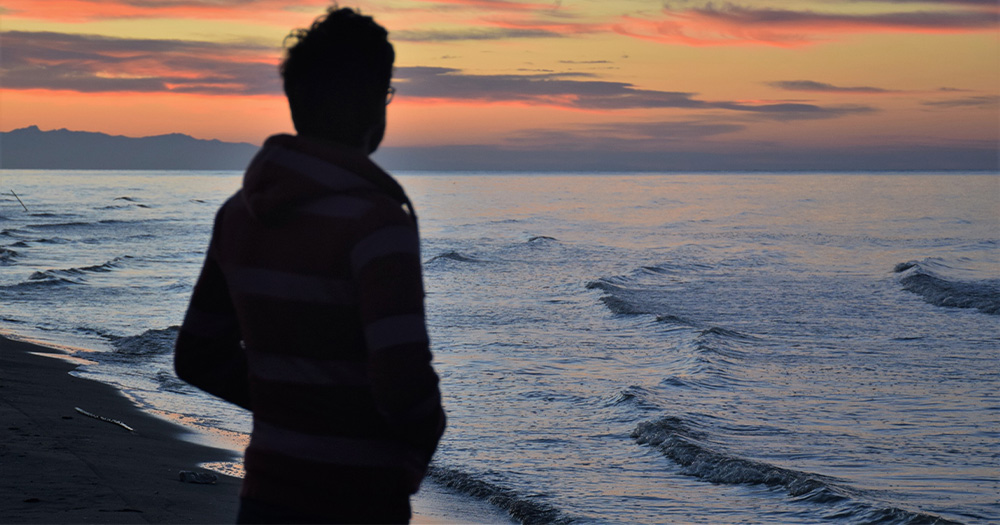Many queer people have taken to Twitter to bravely share their experiences as survivors of sexual violence. Some survivors share the age they were when it happened to them, while others recall their heartbreaking stories.
“It’s time. I was 22 and 23,” one survivor wrote along with the hashtag. Another person simply wrote, “He was my first time”.
https://twitter.com/MrD_Tye/status/1354164127938260994?s=20
“I was 10 or 11. No one believed me when I told them. It partially messed up my teens and my family, [and] delayed my coming out for I don’t know how many years. It’s taken me years to be able to talk about it,” wrote another survivor.
The movement originated in France when journalist, Matthieu Foucher, first shared his story on Twitter. In September 2020, he had published an article on why he felt a gay version of the #MeToo movement was so important in creating a space for other LGBTQ+ victims of sexual abuse to share their experiences.
In Matthieu’s article, survivor Jean-Bapiste, shared his thoughts:
“The instability of our identity in full construction allows predators to seize us as prey … I want the gay #MeToo to exist, to ask ourselves and talk about our sexual violence, in dialogue with feminists while reflecting on our own experiences”
Other Twitter users have shown solidarity, commending the many survivors on their bravery for coming forward and so encouraging others to share their stories too.
you are strong you are light you are worth it and i’m so proud of every one of you talking up today #MeTooGay
— sarah (@rappxfletcher) January 22, 2021
https://twitter.com/CuttingUk99/status/1352548539314958337?ref_src=twsrc%5Etfw
you are so brave and courageous. you are changing history by sharing your stories. thank you. #MeTooGay
— marion (@milledetails) January 22, 2021
Some users also shared their thoughts on the complex nature of speaking up on issues, such as sexual violence, as an LGBTQ+ person. Twitter user, Matthias Parveau, wrote:
“It’s so hard to talk about. It’s so hard when you’re raised amid homophobia, when you have to fight to be who you are, when you try to create a safe space for yourself, and then find yourself a victim all over again.”
In July 2016, the Minister for Children and Youth Affairs Dr Katherine Zappone launched a report, Finding a Safe Place: LGBT Survivors of Sexual Violence and Disclosure in Rape Crisis Centres.
According to the report, LGBTQ+ victims of sexual violence take longer to report the incident and face added difficulties in reaching out for support. The report also found these survivors disclosed higher levels of multiple incidents of sexual violence than heterosexual survivors (26%, compared to 15%).
In Ireland, the RCNI and TENI have teamed up to ensure safe counselling for sexual violence survivors.
Creating, and maintaining, spaces for victims to come forward is essential in educating ourselves and of course, for the wellbeing of survivors – a collective effort that we can all contribute to in deconstructing the stigmas surrounding LGBTQ+ identity and sexual violence.
If you have been affected by this story, or if you need to talk, you can contact the Rape Crisis 24 Hour Helpline at 1800 778888 and the LGBT Ireland Helpline at 1890 929 539.
© 2021 GCN (Gay Community News). All rights reserved.
Support GCN
GCN is a free, vital resource for Ireland’s LGBTQ+ community since 1988.
GCN is a trading name of National LGBT Federation CLG, a registered charity - Charity Number: 20034580.
GCN relies on the generous support of the community and allies to sustain the crucial work that we do. Producing GCN is costly, and, in an industry which has been hugely impacted by rising costs, we need your support to help sustain and grow this vital resource.
Supporting GCN for as little as €1.99 per month will help us continue our work as Ireland’s free, independent LGBTQ+ media.
